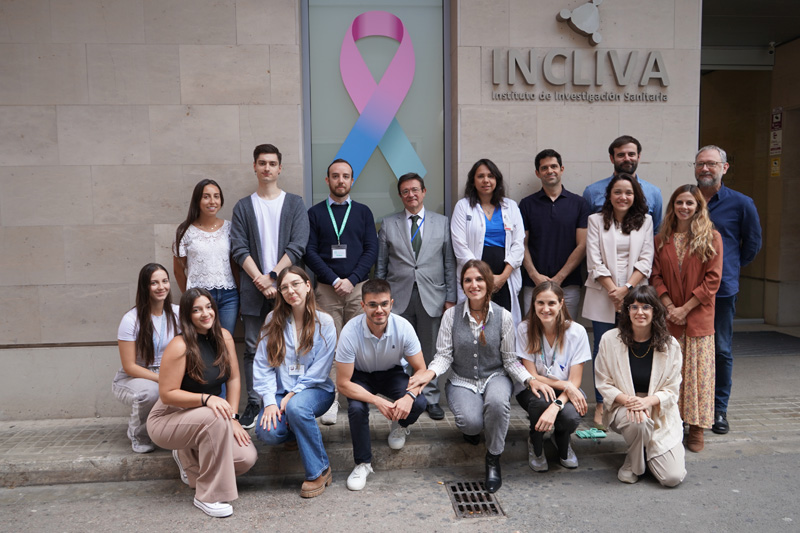
11/10/2024 - General information
The project, Tumour microenvironment-derived factors in localized colon cancer: clinical impact and therapeutic implications (TuMiCC), which investigates the tumor microenvironment in localized colon cancer to optimize treatment, reduce relapse, and improve survival, has made important advances in understanding resistance to standard chemotherapy in certain patients.
The study, in which the Hospital del Mar Research Institute collaborates and is led by the INCLIVA Health Research Institute, also includes the participation of the Vall d'Hebron Institute of Oncology (VHIO).
TuMiCC, which will be extended for another year to continue exploring resistance mechanisms and developing biomarkers to better personalize colon cancer therapies, is funded with one million euros by the Spanish Association Against Cancer (AECC) through the AECC 2020 Coordinated Groups call. This initiative aims to promote collaboration among Spanish research groups and foster the participation of clinical teams, with the ultimate goal of bringing laboratory results closer to patients.
Recent Results
The latest TuMiCC results suggest the development of an artificial intelligence (AI)-based relapse prediction system that will help identify high-risk patients. Additionally, liquid biopsy shows promise in molecularly characterizing patients with a more aggressive phenotype. It has also been discovered that the tumor microenvironment influences chemotherapy resistance, opening new avenues for treatments targeting both tumor cells and their surroundings. These advances could transform colon cancer prevention and treatment.
One of the most significant breakthroughs is the development of an AI-based relapse prediction system. This model, trained on thousands of tumor images, has proven capable of identifying which patients are more likely to relapse after treatment. Thanks to this deep learning tool, it is expected that in the future, doctors will be able to make more informed decisions about which patients need closer follow-up or even additional treatments. This could prevent relapses, which in many cases occur unexpectedly in patients who initially seemed to have overcome the disease.
Furthermore, the project has made a significant effort in molecular tumor characterization, analyzing both their genetic and epigenetic profiles through liquid biopsy, a non-invasive technique that allows the detection of tumor DNA fragments in the blood. This technique promises to revolutionize how colon cancer patients are monitored, as it could offer a quick and easy way to detect relapses before clinical symptoms appear. So far, patient recruitment in Spain has been completed, and ongoing molecular analyses will be key to understanding how certain tumors manage to resist treatments and regrow.
On the other hand, the team is also studying the tumor microenvironment, i.e., the non-cancerous cells surrounding the tumor, such as fibroblasts and immune cells, which can influence its behavior and response to therapy. It has been discovered that some of these cells, such as cancer-associated fibroblasts, play a crucial role in resistance to oxaliplatin chemotherapy, a common treatment for colorectal cancer. This finding is especially promising as it opens the door to developing new drugs that target not only tumor cells but also their environment, preventing healthy cells from collaborating with the tumor.
In this regard, preclinical models have been developed to recreate the interactions between tumor cells and the microenvironment in the laboratory. These models allow testing new treatments and better predicting how patients will respond in the clinic. Thanks to these advances, the project is nearing its ultimate goal: identifying biomarkers that can predict treatment response and prevent relapses in colon cancer patients.
In its final year, TuMiCC will focus on consolidating these findings, with the hope of definitively validating the identified biomarkers and testing drugs that can improve patient survival.

TuMICC Project team
Servei de Comunicació:
Marta Calsina Freixas(ELIMINAR)
Tel:
(+34) 93 316 06 80
Doctor Aiguader, 88
08226 Barcelona
© Institut Hospital del Mar
d'Investigacions MèdiquesLegal Notice and Privacy Policy | Cookie Policy | Site Index | Accessibility | Find Us | Contact